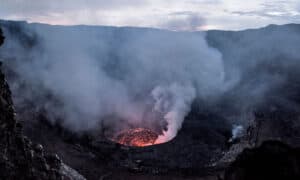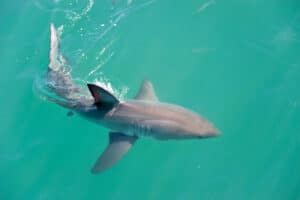The interconnectedness of all earth’s creatures is easy to miss. You may not think that a shark’s existence impacts your own. But it does. They’re apex predators in our oceans and while that gives you an idea of the role they play in the ecosystem, the reality of a shark’s role is much more complex. Their diets are significantly more refined than you might think, and as a result, they function as the ocean’s own cleansing mechanism. Those who fear sharks may shrug at the thought, thinking we may be better off without them. But with a deeper understanding of the topic, you realize that’s not the case — by any means. Discover what happens if all sharks disappear (as explained by a marine biologist)!
The Importance of Biodiversity
Variety is what life is made of. Millions of species inhabit the earth from microscopic organisms to massive animals like elephants and sharks. There are land-dwelling creatures like humans and those that thrive in the sea, contributing to their habitat by virtue of their existence. This impressive variety of interconnected species is called biodiversity. Within each system, there are multiple processes taking place that serve the most important purpose of sustaining life by maintaining balance. But how does a shark play into maintaining balance in the ecosystem? Let’s explore further.
How Sharks Regulate the Ecosystem
Carmen Koepfer, Marine Biologist and Shark Specialist, told A-Z-Animals, “Sharks are predators, meaning they are at the top of the food chain and are considered a keystone species. When removed from the ecosystem, the entire system collapses. This happens because sharks regulate the ecosystem, maintaining biodiversity by exerting pressure on or controlling the populations of mesopredators (the next levels in the food chain). They ensure that these populations do not reproduce excessively and disturb the balance of the subsequent levels. By feeding on the weaker, often sick individuals, sharks act like the white blood cells in our immune system, cleansing the sea.”
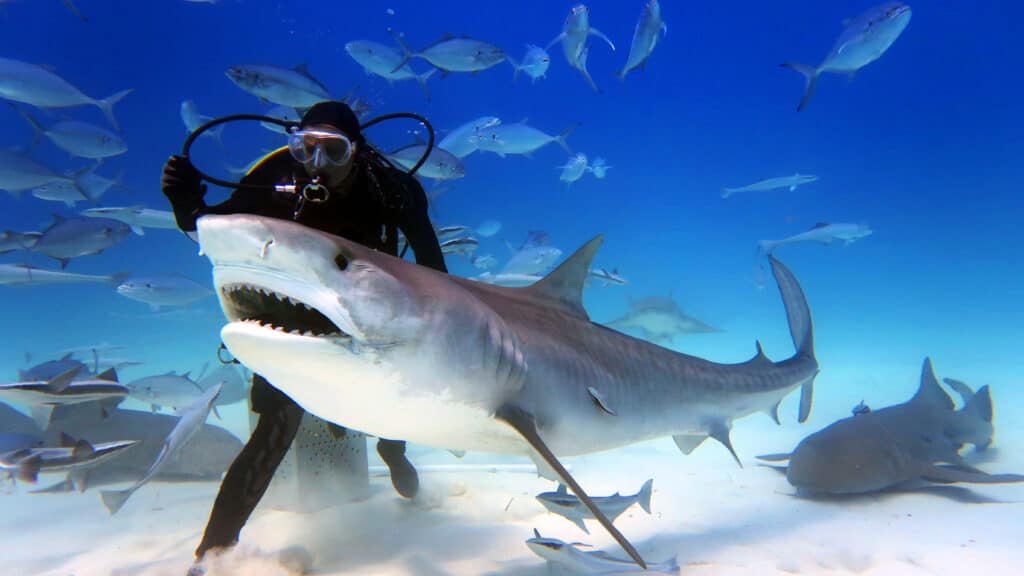
When sharks are removed from the ecosystem, the consequences are far-reaching.
©HQuality/Shutterstock.com
Koepfer invites you to consider how your own body works to maintain balance. Each cell has a particular role in ensuring your survival. When homeostasis is disrupted in your body, disease thrives. She continues, “In our body’s immune system, white blood cells protect us from diseases and keep us healthy. Similarly, if sharks are removed, the populations of stronger and healthier organisms that are essential for reproduction are not kept in check. This allows genetically weaker and less optimal individuals to reproduce, passing on vulnerabilities, diseases, or suboptimal traits to the next generations. The survival of the fittest is supported by this predator-driven cleansing system.”
The Impacts of Ecosystem Disruptions
Ecosystems experience unforeseeable consequences when there’s a change in top predators. For example, in the eastern region of North America, the population of white-tailed deer increased significantly when wolves were intentionally removed. This domino effect occurs on land as well as in aquatic environments. For instance, when people overfish cod in the northern region of the Atlantic Ocean, the population of their typical prey, pelagic fishes, increases significantly.
This overpopulation then affects the population of zooplankton. A drop in the population of zooplankton then results in an increase in the presence of phytoplankton. Any disruption to the ecosystem, be it minute or drastic, has an effect on the living organisms around it. Through various experiments, researchers have uncovered the numerous ways entire ecosystems are altered — and how a healthy balance is crucial for all living beings inhabiting the earth.
What Happens if All Sharks Disappear?
Koepfer provides an example of what happens if all sharks disappear, touching on a vital concept called the “cascade effect.” She explains, “The functions of predators in the ecosystem and the consequences of removing them have been studied. In 2007, Ransom Myers discussed the cascade effect in his article, “Cascading Effects of the Loss of Apex Predatory Sharks From a Coastal Ocean” where the overfishing of 11 shark species led to the removal of these predators. As a result, smaller rays and sharks proliferated, causing imbalances and negatively impacting important fisheries. This demonstrates the cascading effect: removing the top predator affects the next levels in the chain, leading to unforeseen consequences.”
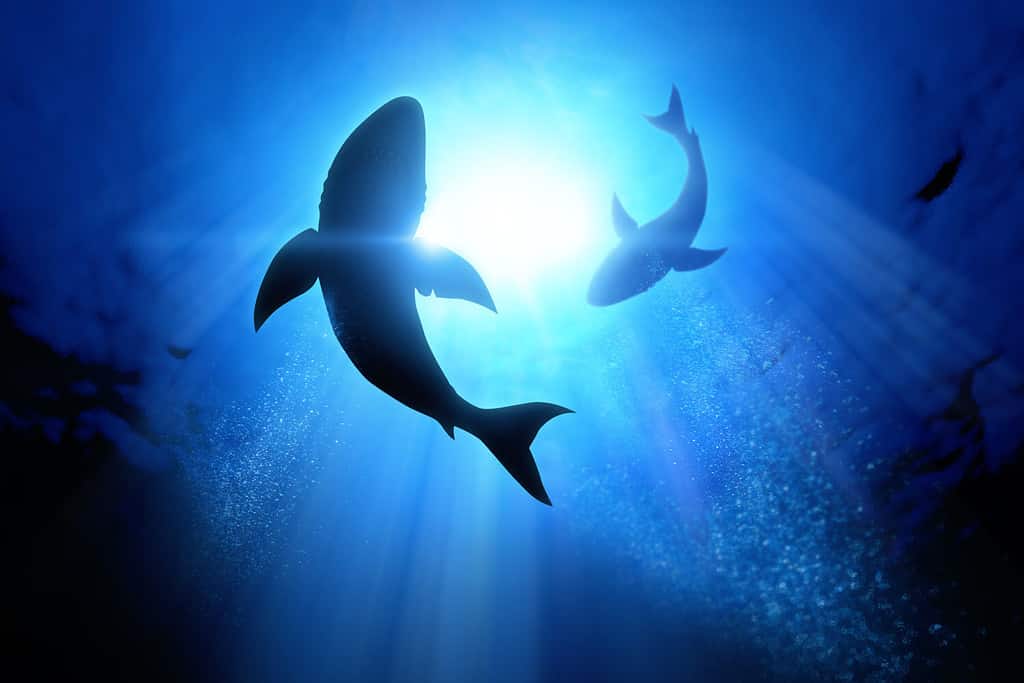
In the absence of sharks, other species proliferate, leading to a range of unforeseen circumstances.
©solarseven/Shutterstock.com
Koepfer continues, “For example, a study in California revealed that removing otters resulted in an overpopulation of sea urchins, leading to the destruction of the kelp forest they feed on. This, in turn, disrupted the ecosystem and posed challenges for forest restoration programs. When a link is removed from the ecosystem, it can trigger a domino effect, ultimately jeopardizing the entire system and potentially causing dead zones in the sea. In conclusion, sharks are now considered bioindicators of ecosystem health. The presence of sharks in an area signifies a healthy ocean. Removing sharks can lead to a cascading effect, destroying everything below and potentially creating dead zones in the sea.”
What Is a Dead Zone in the Ocean?
When oxygen levels drop in the ocean, most life is lost — this includes coral reefs and seagrass. Dead zones are also referred to as hypoxic zones and describe deserted marine environments. Marine life that can migrate leave the dead zone in search of better conditions but organisms that can’t leave the area suffocate, leaving behind an underwater grave of sorts. This is why the presence of sharks serves as a bioindicator of ecosystem health. When sharks are present, you know the ecosystem is functioning optimally, considering they affect every other species beneath them on the food chain. They have the power to change the spatial habitat of their prey, which then shifts how they find food and what they consume.
The process isn’t linear, but the presence of sharks affects the life of coral reefs and seagrass. When sharks are no longer present, entire seagrass beds and previously brimming coral reefs experience a sharp decline. According to Oceana, this occurs because once the top of the food chain is no longer present, the next predatory fish in line, like the grouper for example, start to alter the ecosystem. Their population increases, which means they consume more herbivores. As a result, macroalgae grow considerably and become a competitor for the coral reef. The disappearance of sharks changes an entire habitat, killing off the reef system and in turn, changing it into one dominated by algae.
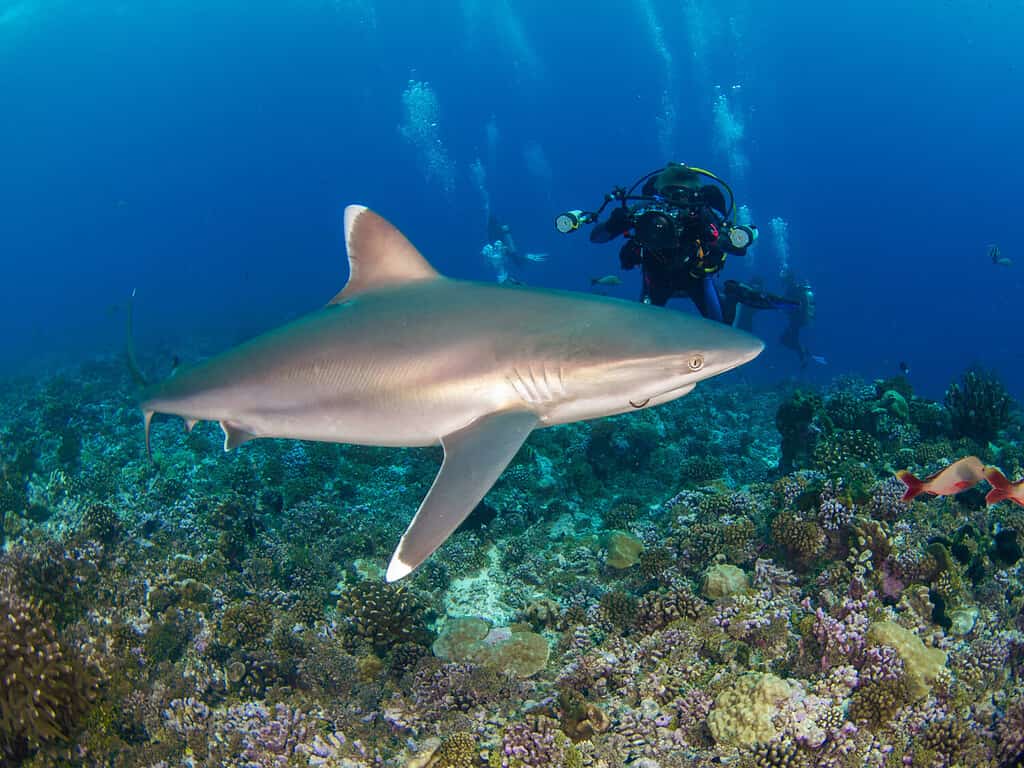
The health of coral reefs depends on the presence of sharks.
©Mayumi.K.Photography/Shutterstock.com
How Does the Disappearance of Sharks Affect Humans?
We’ve established that the presence of sharks indicates healthy ecosystems in the ocean. If they were to disappear, all ecosystems would fall out of whack. There are existing studies that prove the cascading effects but there are innumerable variables to account for that would easily result in startling consequences. As Koepfer explained, the loss of sharks has resulted in the overpopulation of rays, which then obliterated the populations of sea creatures humans consume. Fisheries closed as a result of this imbalance.
Not only does the loss of shark populations impact fisheries, but there are entire economies that depend on live sharks. For instance, in Florida, ecotourism is alive and well. Tourists arrive from all parts of the globe to witness and dive with live sharks. They get a chance to experience them in their natural habitats. This fuels the economy, but the availability of ecotourism doesn’t just support the local economy. It also helps with conservation. And just like that, we can close a loop. Sharks help a myriad of other species, humans included, and by participating in ecotourism, you can support them as well.
The photo featured at the top of this post is © Lewis Burnett/Shutterstock.com
Thank you for reading! Have some feedback for us? Contact the AZ Animals editorial team.




